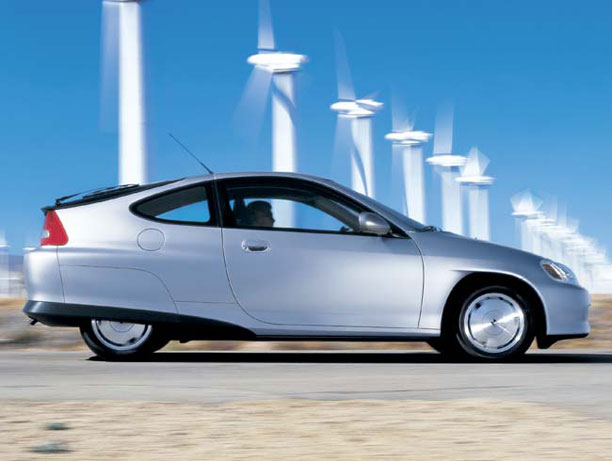Hybrid cars are rapidly becoming a serious proposition for many motorists. While at first their appeal was largely to early adopters of new technology and to those for whom environmental factors were important, ever-increasing fuel prices have meant that running costs have now become the primary consideration for many buyers.

Types of hybrid
Hybrid cars can be broadly split into two categories: series and parallel. Both of these rely on a combination of petrol or diesel and battery power, but each utilises it in a different way. In a series hybrid like the Chevrolet Volt, the electrically-operated elements of the car are powered in turn by the oil-based fuel. In a parallel hybrid such as the Honda Insight, however, petrol or diesel and electric power operate together. Regenerative braking, which stores the kinetic energy generated as the car slows in the battery for use in forward propulsion, is the key element of this design.
Hybrids are also sometimes split into mild and full hybrids. Full hybrid cars are those which produce enough electricity for propulsion, with battery or internal combustion used as appropriate without the need for any driver intervention. A mild hybrid car, on the other hand, is incapable of running on battery power alone, instead using its electricity to give an extra push to the conventionally powered engine under acceleration. A further class, known as the micro hybrid, is not strictly a hybrid car at all, but simply a conventional vehicle with a “stop-start” system allowing the engine to be switched off when the car is stationary.
Pros and cons
Inevitably in the current economic climate, financial aspects are foremost in the minds of most motorists, and the thing that stands out most as a reason to buy a hybrid is fuel economy. In town driving especially, hybrids have a tremendous advantage here: the Toyota Prius can exceed 80 mpg with relative ease. Drivers will save on road tax, too, with these cars being zero-rated on account of their very low CO2 emissions. Plug-in hybrid cars – those whose batteries can be charged at the roadside – are also exempt from the London congestion charge; Transport for London publishes a list of approved models.
On the debit side of the ledger, hybrids are still considerably more expensive to buy than conventionally powered cars of the same size, and tend to be both heavier and slower thanks to the dual powertrain. The complexity of the engine and associated parts also means that maintenance and parts may be somewhat more costly, and that local garages and mechanics might not have the expertise required to service a hybrid correctly. There is also much less choice in the market, with certain sectors still represented poorly: drivers looking for a hybrid executive car currently have little option but to purchase a Lexus.
David Buttery, a freelance writer, provided this article for www.morethan.com. The opinions expressed are those of the author and any data provided does not originate from More Than.
Choosing A Hybrid Car

